You will be met on arrival at Johannesburg's OR Tambo International Airport, and transferred to your Guest House close to the airport.

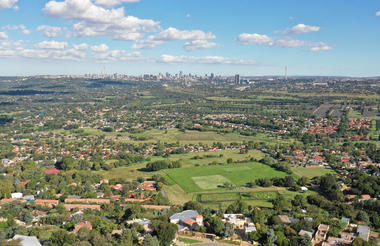
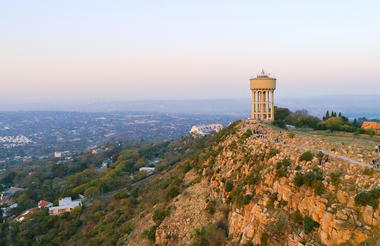
For Self Drive option:
Transfer after breakfast from your Guest House back to the airport, where you will collect your rental car. Follow the driving directions provided, to your course camp.
Karongwe Camp:
The camp is located on the banks of the Karongwe River (mostly a dry river bed) in the 9 000ha (22 239-acre) Karongwe Game Reserve, which is to the south-west of the Kruger National Park. Three rivers flow through the reserve, all tributaries of the Olifants River, carving their way through the bedrock and dividing the reserve.
The vegetation of the reserve falls within the savannah biome of southern Africa, with distinct vegetation zones being represented – mixed Lowveld and Mopane bushveld along with grass savannah, riverine vegetation and rocky outcrops.
More than 60 mammal species and abundant birdlife makes for good hunting with camera in hand. Sightings of the all the cats – lion, leopard and cheetah – as well as elephant and white rhino are a regular occurrence. With an unfenced camp, nightly visits from other species, such as hyena, are also not out of the ordinary.
The camp consists of 10 walk-in Meru tents, with twin beds (students share tents) and supplied bedding (a duvet and one pillow); although you might want to bring an extra blanket for the winter months and an additional pillow should you require. There are also shared ablution facilities and a central communal area. There are mosquito nets in camp.
There are viewing decks in the central area of the camp, which many students choose to make their “bedroom” for part of or for the duration of the course.
Makuleke Camp:
Situated between the Limpopo and the Luvuvhu Rivers in the northern section of the Kruger National Park is the Pafuri region, an area spanning 24 000ha (59 305 acres). Within the Pafuri area is the Makuleke Concession, the ancestral home of the Makuleke people and the most diverse and scenically attractive area in the Kruger National Park.
The Makuleke Concession is not accessible to the ordinary tourist visiting the park. This area belongs to the Makuleke community, who were removed in 1968. After a lengthy process, however, it was finally returned to the community in 1998 in what was a historical event for South Africa.
This area is certainly the wildest and most remote part of the Kruger National Park and offers varied vegetation, great wildlife viewing and the best birding in all of the park, and it is filled with folklore of early explorers and ancient civilisations.
This is a true wilderness area, steeped in history and situated in the remotest part of Kruger, in one of its most biologically diverse areas.
Scenery ranges from the beautiful, quietly flowing Luvuvhu River, shaded by nyala trees and fever tree forests, and teeming with hippos and crocodiles, to the awesome Lanner Gorge, palm-fringed wetlands and rocky outcrops with thousand-year-old baobab trees.
All the wildlife that one would expect to see in a great national park such as Kruger can potentially be encountered on the concession. Plains game such as zebra, kudu and impala are common, while lions and leopards are a special sighting. Herds of elephant, a few rhinoceros, African buffalo, nyala antelope and also seldom-seen animals such as eland and bushpig can be seen.
This part of Kruger is known to be one of the best birding areas in the park, and is home to rarely seen species such as the Pel’s fishing owl, Three-banded Courser and grey-headed parrot.
Twenty students are accommodated in comfortable thatched, tented rooms, placed on wooden decks in the shade of large nyala trees. Each room has an en-suite bathroom consisting of a shower and washbasin with hot running water and a flush toilet, as well as a veranda overlooking the surrounding bush.
The camp is not fenced, which means that animals do move through it from time to time.
Mashatu Camp:
The Mashatu Reserve is part of the Northern Tuli Game Reserve, which is located at the confluence of the Limpopo and the Shashe Rivers, in the easternmost corner of Botswana.
The Northern Tuli Game Reserve is the collective name for several privately owned game reserves, including the Mashatu, Ntani and Tuli reserves, covering all the land north of the Limpopo River.
The Camp is located in the Land of Giants, in the Tuli reserve of Botswana bordering South Africa. Tuli forms a key part of the proposed Greater Mapungubwe Transfrontier Conservation Area. It is an area of outstanding natural beauty, with majestic rocks, diverse vegetation, abundant wildlife, a profusion of birds and a rich archaeological heritage, and spans more than 25 000ha of wilderness.
Besides elephant, lion, cheetah, leopard and hyena, general game such as giraffe, zebra, wildebeest, eland and a variety of antelope, and nocturnal species such as the springhare, bat-eared fox, civet cat, genet, honey badger and mongoose, are prevalent throughout the reserve.
The birdlife is prolific, with Mashatu Game Reserve recording at least 366 different species.
The four-wheel drive safari vehicles enable off-road travel and provide guests with up-close game viewing and fantastic photographic opportunities.
Night drives, with the aid of powerful spotlights, bring the bush to life.
The camp consists of 10 simple dome tents, each with two mattresses with pillows (two learners per tent). Please bring along your sleeping bag and an extra blanket/pillow if required. There are shared bathroom facilities, and a central communal area overlooking the river bed.

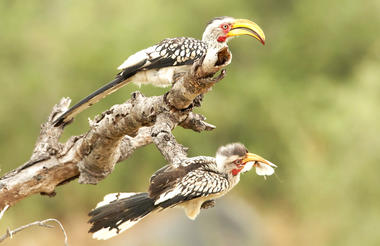
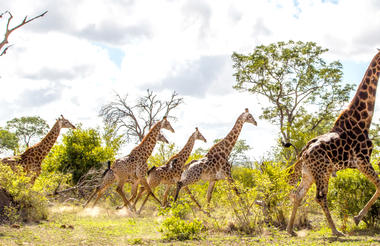
This EcoQuest course is designed to provide a learning experience, and incorporates certain aspects of a more formal Safari Guide course. It is aimed at those who are looking for a more in-depth bush experience, but who do not necessarily have four weeks to break away from work obligations.
If you are an adventurous spirit wanting to gain a greater understanding of nature and the environment while experiencing the excitement of the bush, then the Eco Quest course is for you. Or if you are a student testing the waters for a career in this field, join this course. You will be taught how to drive a 4×4 vehicle, to identify birds, plants, trees and tracks, and how to track animals.
The course consists of two components – fascinating facts and knowledge gained about all elements of nature combined with a day in the life of a safari guide experience.
- You will learn about the infinite variety of living organisms that exist in nature.
- Study the behaviour, interaction and identification of the small creatures and birds in the ecosystems.
- Understand the underlying elements that support this variety of life such as geology, soils, plants and climate.
- While you study these smaller organisms, you will study and learn to identify the habits and behaviour of the larger charismatic wild animals that roam these wilderness areas.
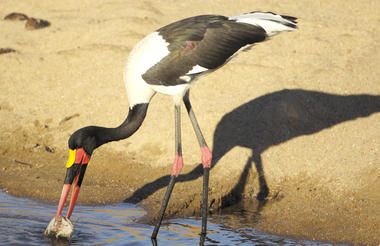
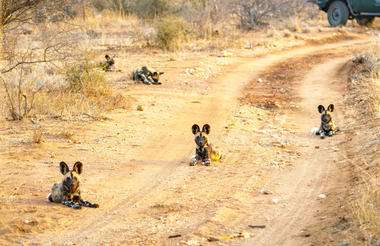
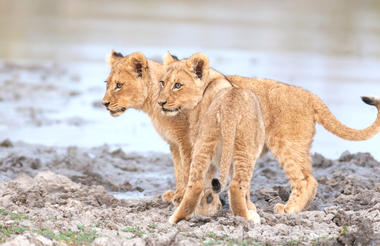
The subjects offered in this course include:
- Ecology
- Common trees and shrubs
- Animal tracks and tracking
- Bird identification and behaviour
- Animal behaviour
- Astronomy
- Orientation and navigation
- Bush skills
- Using binoculars correctly and positioning for photography
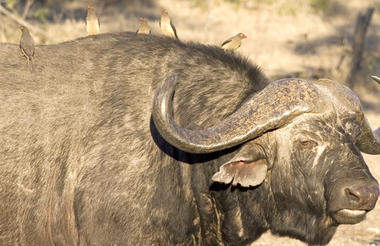
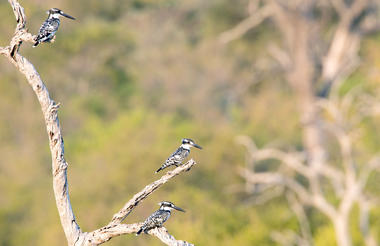
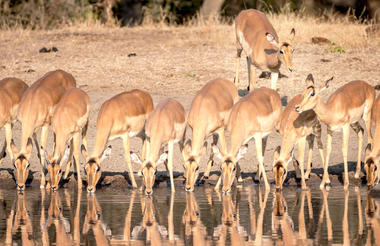
You will be based in camps in prime wildlife areas, and partake in wilderness walks or game drives twice a day.
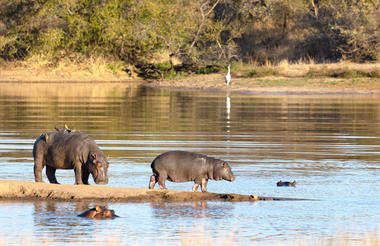

Your last day in camp. After saying your goodbyes, Self Drive back to Johannesburg. Tour ends at Johannesburg's International Airport.
If you would like to extend your stay in the region, maybe at a safari lodge, please contact us for details.

